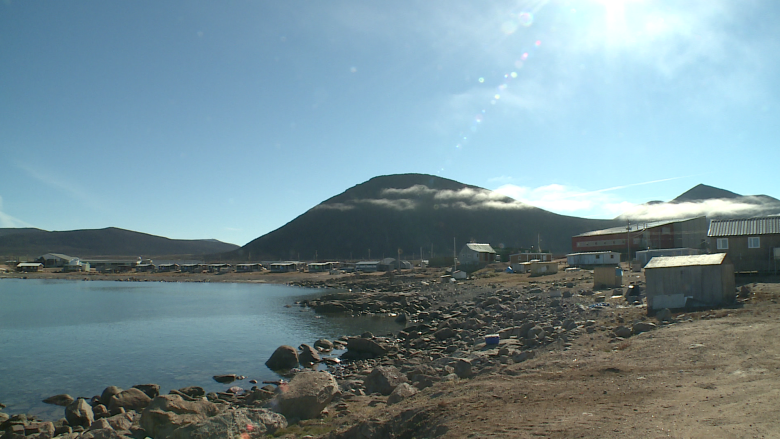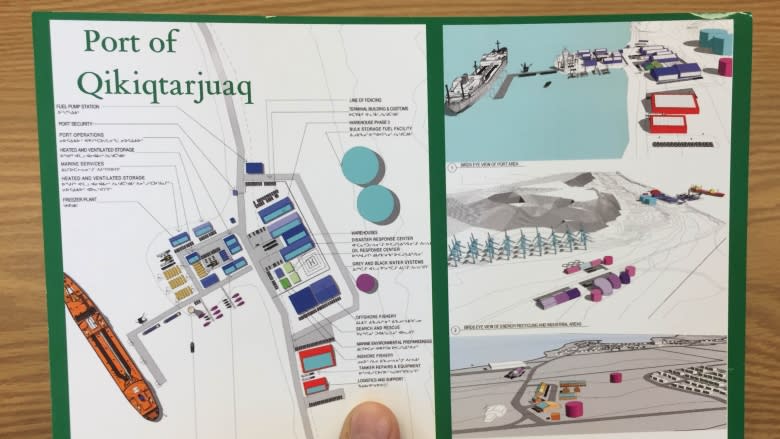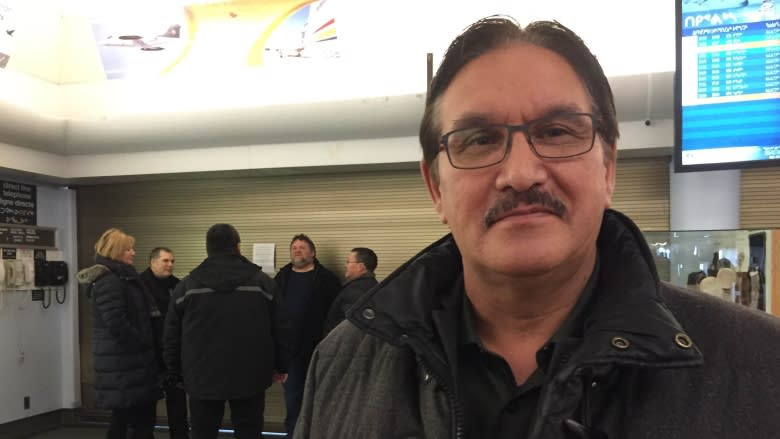Nunavut hamlet seeks Chinese investors to build dream port
The Nunavut hamlet of Qikiqtarjuaq has been lobbying the federal and territorial governments for a deep water port for decades, but funding has never come.
Now, with the Northwest Passage opening, they're turning to international investors to build their dream port.
"We are serious now to make this dream a reality," said Arthur Nicomedes, the hamlet's director of finance. "Qikiqtarjuaq is strategically located and beautiful.
"That's why I'm calling this place 'little Singapore of the Arctic.'"
The small hamlet of over 500 people is located on Baffin Island on the east coast of Baffin Bay, near the entrance to the Northwest Passage with a protected harbour, good anchorage and a moderate tide range.
And, as the Northwest Passage continues to open, the community has high hopes of becoming a destination port ready to cash in on the naval traffic.
"It's some serious money," said Nicomedes. "There will be maximum trade activities in this part of the world, so we don't want to miss that."
'A share of the Arctic'
The community has been lobbying for a deep water port since the early 1950s, when the DEW line was first created. However, with nothing built, the hamlet's residents are running out of patience.
"The Government of Nunavut and federal government have already helped us, but their help is not enough," said Nicomedes.
With no other pools of funding on the horizon, the hamlet is looking to wealthy foreign investors for help, "extending an invitation to wealthy Chinese businessmen," according to Nicomedes.
Nicomedes added that some foreign investors have already come forward "to have a share in the Arctic."
He said these investors recognize the economic potential in the project and are not deterred by the port's estimated $50 million price tag.
Port means jobs for Nunavut community
For those in Qikiqtarjuaq, many of whom are on social assistance, a large project like the port means more than long-term opportunity — it means jobs.
In addition to work constructing a port, Qikiqtarjuaq is a stone`s throw from prime fishing grounds rich with turbot and shrimp off the Davis Strait, and a port could mean opportunities in the fishing industry, according to the CEO of the Qikiqtaaluk Corporation.
"[A port] is essential, and it's very crucial to the fishing industry," said Harry Flaherty.
The Inuit-owned corporation, a co-owner of the Qukiqtaaluk Fisheries Corporation, has been lobbying for the Qikiqtarjuaq port for years, arguing the community's proximity to the fishing grounds makes it ideally located to unload the catch, refuel and repair ships.
"Most of our vessels are heading over to Greenland [to offload fish, refuel, and change crew] and other jurisdictions," said Flaherty. "This would really reduce the downtime."
Flaherty added that a port in Qikiqtarjuaq could support a processing plant near the fishing grounds, open opportunities for selling shrimp locally, and create more local jobs, like net-making and welding.
Outside investors can be risky
But going to foreign investors may pose serious risks, and Qikiqtarjuaq doesn't need to look far to see a cautionary tale.
In Hudson Bay, the Port of Churchill, Canada's only Arctic deep water port, was closed down earlier this year by its Denver-based owner, OmniTRAX Inc., leading to dozens of layoffs and having economic impacts that rippled through the prairies.
"When a jurisdiction is over the barrel, can't find the money, can't move ahead, the private sector will definitely use that to their advantage," said Armine Yalnizyan, the senior economist at the Canadian Centre for Policy Alternatives.
"There's no private sector corporation that will give us a deal because it's a nice thing to do."
According to Yalnizyan, there are three possible ways that Canadians can lose when an outside investor takes over a public infrastructure project.
"The first is is the idea that our taxpayer dollars do double duty," she said, explaining that when projects are funded locally, locals are usually hired to do the job.
However, foreign companies usually tend to import temporary foreign workers to do the job, meaning that the money that goes into the projects trickles out of the community.
The second problem is loss of revenue — either by paying investors directly for funding the projects, or by negotiating a deal to allow them to collect a share of future revenues.
Third, Yalnizyan points to the problem of managing risk, harkening back to the abandoned port in Churchill.
"What happens when a company goes bankrupt?" She asked.
"At the end of the day there is no risk shifting. The tax payer is on the hook for the whole thing."
'North is the new West'
Building a deep-water port in Nunavut should be "a public interest issue," said Yalnizyan.
"The North is the new West," she said. "The public needs to be invested in opening up opportunity, as the North becomes more of an economic development zone for the entire nation."
Yalnizyan said the current economic situation gives government a great opportunity for investment in infrastructure.
"Given historically low interest rates, it's crazy for governments not to borrow and build in the public interest, for the public good."
- MORE NORTH NEWS | Searching for Terror: Hunt continues for 2nd Franklin Expedition ship
- MORE NORTH NEWS | Hunters fend off wolves after dog attacked at wilderness camp






